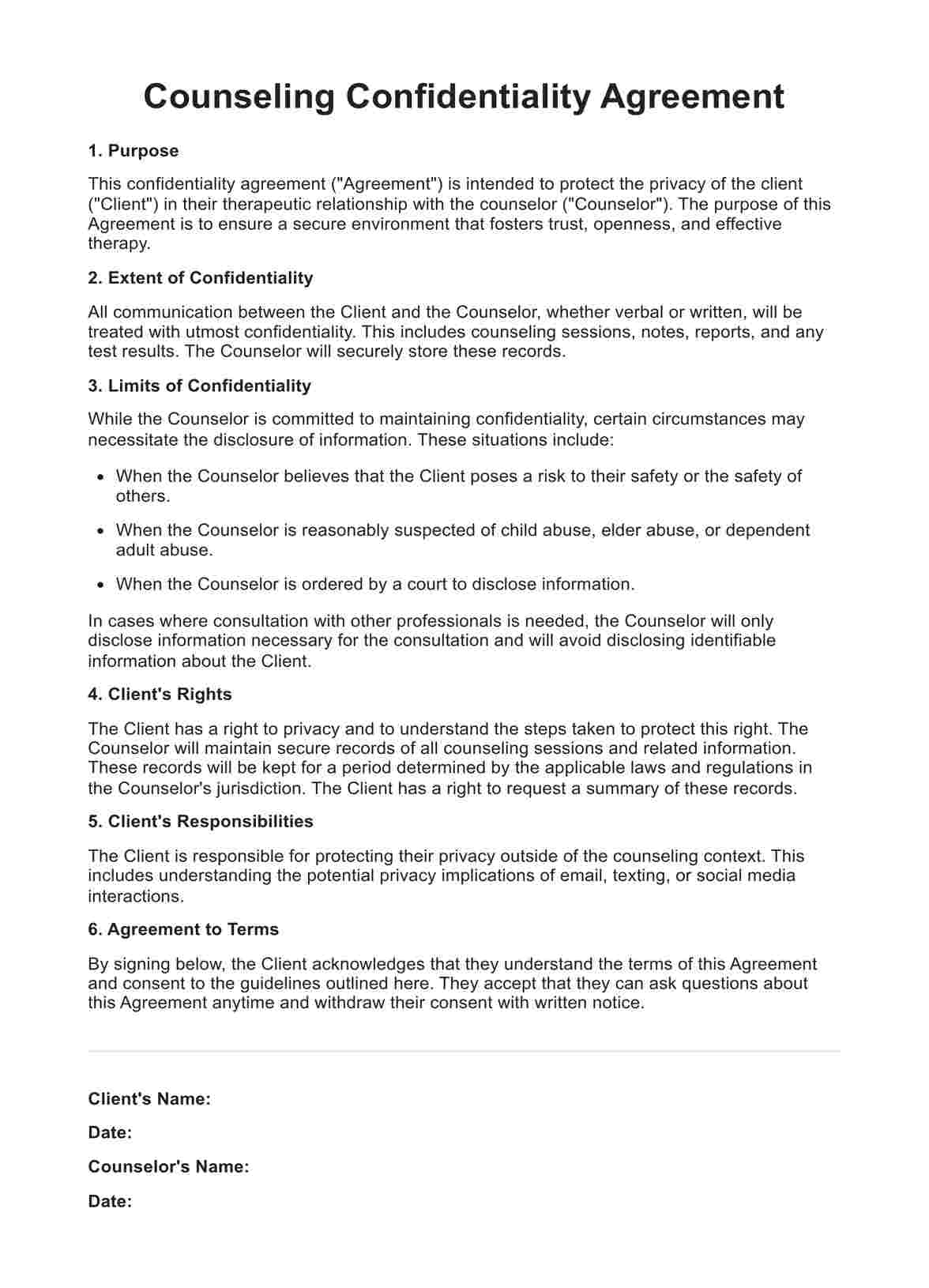A confidentiality agreement in mental health counseling is a formal understanding between clients and their mental health professionals, ensuring that sensitive information shared during therapy sessions is kept private. This includes personal experiences, thoughts, feelings, and any specific information disclosed during counseling. The agreement is foundational to the therapeutic relationship, promoting trust and open communication.

Counseling Confidentiality Agreements
Dive into our comprehensive guide to understanding counseling confidentiality agreements. Download our free sample template.
Counseling Confidentiality Agreements Template
Commonly asked questions
Yes, there are specific circumstances under which a counselor may disclose confidential information without the client's consent. These include situations where there is a risk of serious harm to the client or others, if a court order mandates disclosure, or if a client is a disabled person in danger. In such cases, mental health professionals might need to report to the appropriate state agency or seek hospitalization for the client.
Generally, family members or other parties cannot access a client's confidential records without the client’s explicit consent. However, there are exceptions, such as in the case of a legal guardian for a disabled person or under specific state laws. Mental health professionals follow strict ethics and professional standards to protect client confidentiality.
EHR and practice management software
Get started for free
*No credit card required
Free
$0/usd
Unlimited clients
Telehealth
1GB of storage
Client portal text
Automated billing and online payments











